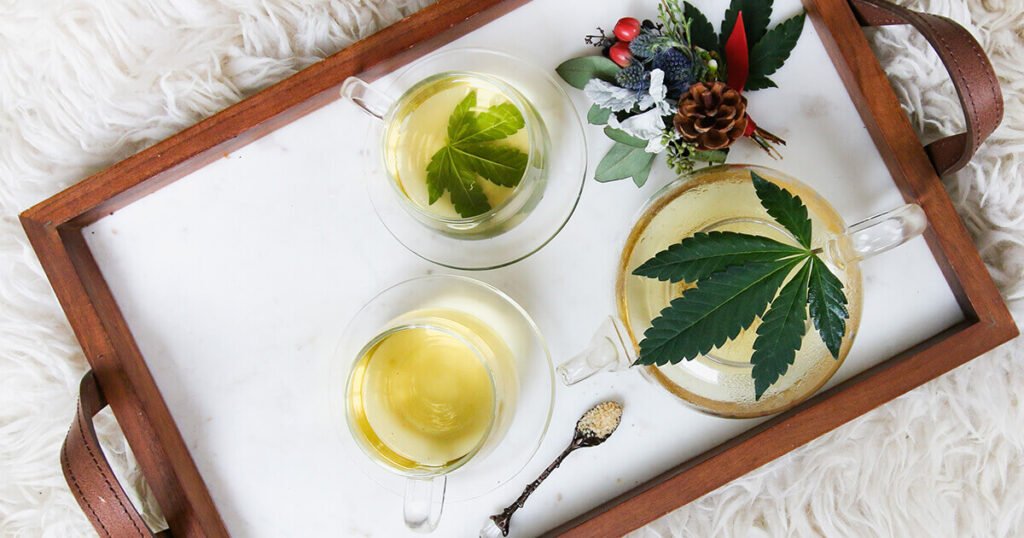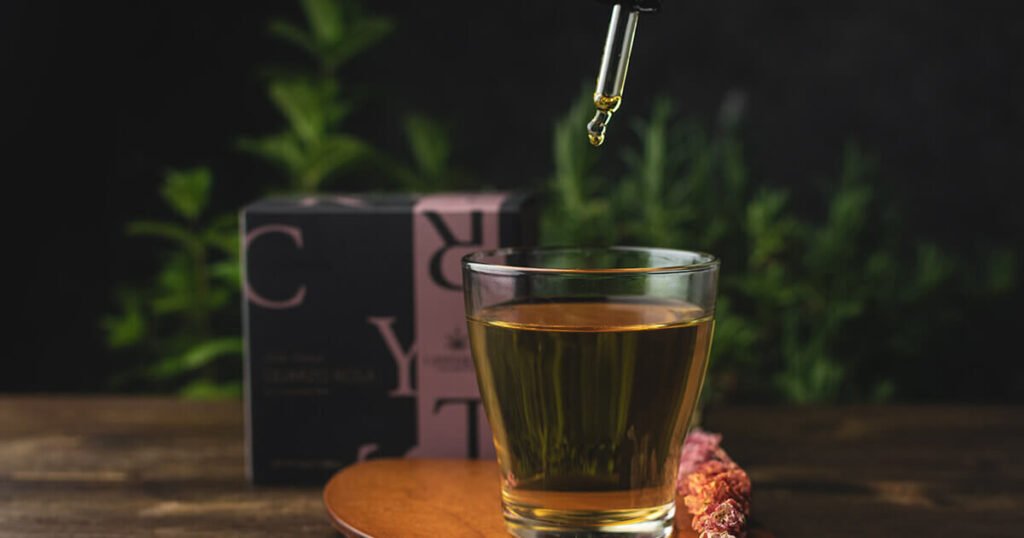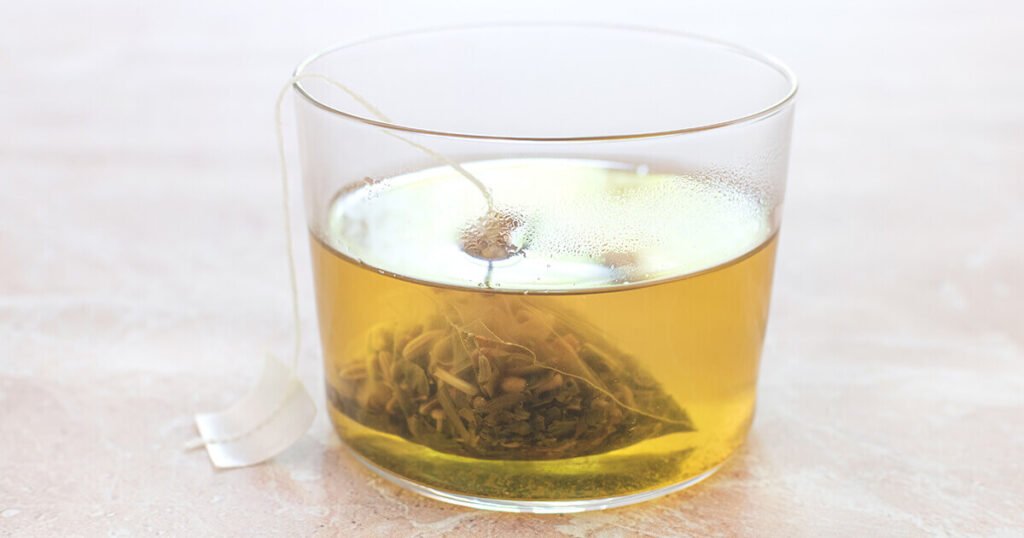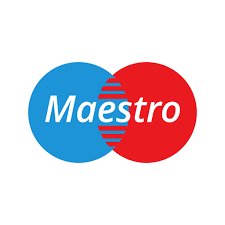Hemp tea has a long history. It originates from Asia, and it was created with the help of dried flowers and leaves of the hemp plant.
From as early as the production of tea, the medicinal powers of its extracts were utilized by those who sought a remedy to daily ailments. It’s also no surprise that cannabinoids and tea seem to go hand in hand. The calming blend of the two components met somewhere around 2737 B.C.
Throughout that time, mystical Emperor Shen Nung of China was said to have been already prescribing Cannabis-infused tea for the treatment of gout, rheumatism, malaria, and, oddly enough, poor memory.
From then on, the popularity of the drink and its unique characteristics spread rapidly throughout China and later the rest of the world. Depending on the method of drying, it is greenish or brown in color, it has a mild natural taste, and is harvested when the plant has matured to reach the top content of cannabinoids – the plant is the most useful element.
What parts of the hemp plant are brewed in CBD tea?

Hemp tea is made by using a combination of seeds, leaves, and stems. However, tea made only from hemp flowers has the highest concentration of cannabinoids.
People have been drinking hemp tea for thousands of years. They’ve turned to hemp tea, which is often called CBD tea, because of its healing properties. In recent years, modern science has proven the numerous health benefits of hemp products, including hemp tea.
Is there CBD in hemp tea?

Hemp tea is full of CBD.
CBD content is one of the main reasons for many health benefits.
It contains a full spectrum of cannabinoids. This combination of cannabinoids and terpenes contributes to what is known as the entourage effect. This is a term that describes how the combination of cannabinoids and terpenes works to create a stronger effect than CBD itself.
Entourage effect
The entourage effect is often shrouded in mystery and we’ve been noticing that there is a general lack of understanding around this theory, but here’s the simple catch. The plant contains dozens of different cannabinoids that each have their own unique properties. CBD may be the most beneficial from a wellness standpoint, but the support of other cannabinoids can actually boost the performance of the compound and its ability to positively impact the Endocannabinoid system (ECS).
In addition to CBD, tea is rich in antioxidants, other cannabinoids, and plant nutrients. The presence of so many natural plant chemicals adds to the side effect and allows CBD to be more efficiently absorbed into your blood. Hemp tea provides a mixture of cannabinoids that gives a much milder taste than the taste of CBD oil. Instead, it provides a natural, herbal flavor that, while still tasting hemp, can be very enjoyable at any time of the day.
What are the health benefits of CBD tea?

Anxiety and depression
How can CBD tea help you with anxiety and depression?
CBD affects serotonin receptors in the brain and considering that – one of its main CBD advantages is its anxiety relief effects and its ability to regulate mood and thus social behavior.
Serotonin is one of the neurotransmitters that improve mood and reduce stress. Studies have found that CBD increases the effects of serotonin by increasing the activity of serotonin-binding receptors. Consumption can potentially help those suffering from depression by helping to improve mood and control stress.
Heart disease
CBD’s anti-inflammatory and antioxidative properties may be able to reduce risk factors that can lead to heart disease, like high blood pressure. It may also be able to reduce the risk of related conditions, like stroke.
Heart disease is caused by narrowed or clogged blood vessels in the heart, resulting in chest pain, heart attack, or stroke.
High blood pressure
High blood pressure is the leading risk factor for hypertensive heart disease. Your blood pressure can rise under stress, but some research suggests a dose of CBD can lessen that spike.
Healthy lungs
Hemp tea helps people with any respiratory condition such as asthma, as well as people with allergies. CBD is a bronchodilator, which means that it helps to expand the airways and vessels in the lungs, as well as to have anti-inflammatory and anti-spasmodic properties.
Insomnia
People affected by sleep disorders often suffer from symptoms that include daily fatigue, irregular breathing, and/or increased movement while sleeping. Hemp tea affects calmer and deeper sleep. Studies have found that CBD, which predominates in hemp tea, reduces REM sleep disorder.
Hemp tea against nausea
When it comes to treating nausea, most tea drinks go for ginger. This is because ginger tea is one of the most famous digestive aids in the environment, it relieves bloating, gas, and irritation of the gastrointestinal tract. However, the benefits of hemp tea can also help you because of the cannabinoids contained in it. In other words, CBD in this drink offers relief from cramps in the abdominal muscles, thus eliminating nausea.
Let’s demystify

Does CBD tea make you sleepy?
Hemp tea for sleep has a relaxing and calming effect, strengthens the immune system, improves digestion, increases appetite, promotes better mood and positive thoughts, all of which consequently improve your sleep.
Can CBD tea get me high?
There is a misconception among those unfamiliar with CBD – that anything made from hemp will “lift” you or make you “high” but that is simply not the case. Our CBD products have very little THC, more precisely up to 0.2%.
How long does hemp tea take to work?
The active ingredients in the plant are absorbed through the digestive tract and liver. The tea takes effect between 30-90 minutes after ingesting. However, the effects usually last around 4-8 hours, peaking at about 2-3 hours in.
Does CBD tea make you tired?
Tea and CBD make a great pair since the caffeine in the tea can balance the slight sedative effects of the cannabidiol, letting you reap the full benefits of its potential stress and anxiety reduction and focus enhancement without making you feel sluggish.
How often can you drink CBD tea?
If you have not used any hemp before, start with 1 cup of CBD hemp tea (max. 250 ml) a day. When you feel no effects of CBD hemp tea, you can increase your intake to 2 or 3 cups a day at an interval of 12 or 8 hours, morning – (lunch) – evening.
Now that you have the necessary information about CBD tea, the only thing left is to try it and see all the benefits of this wonderful plant by yourself.










